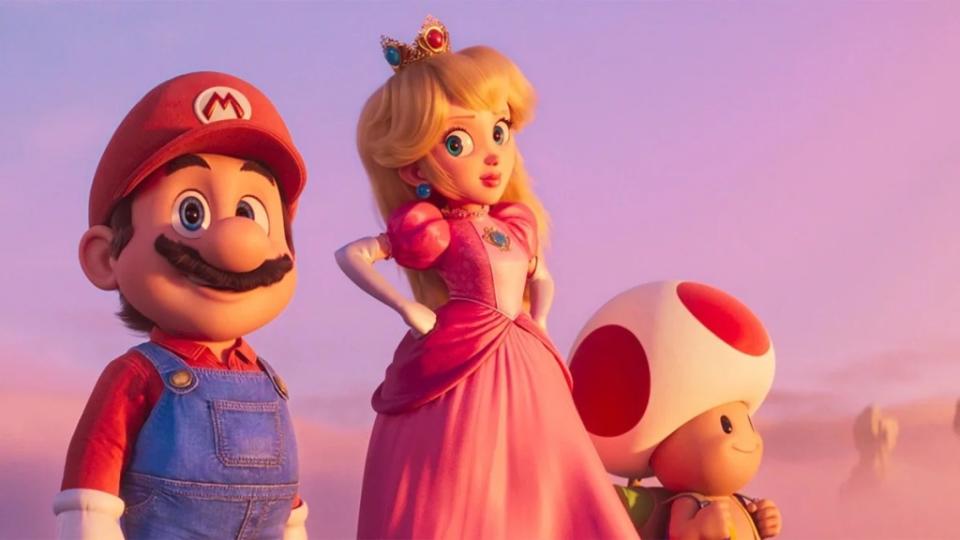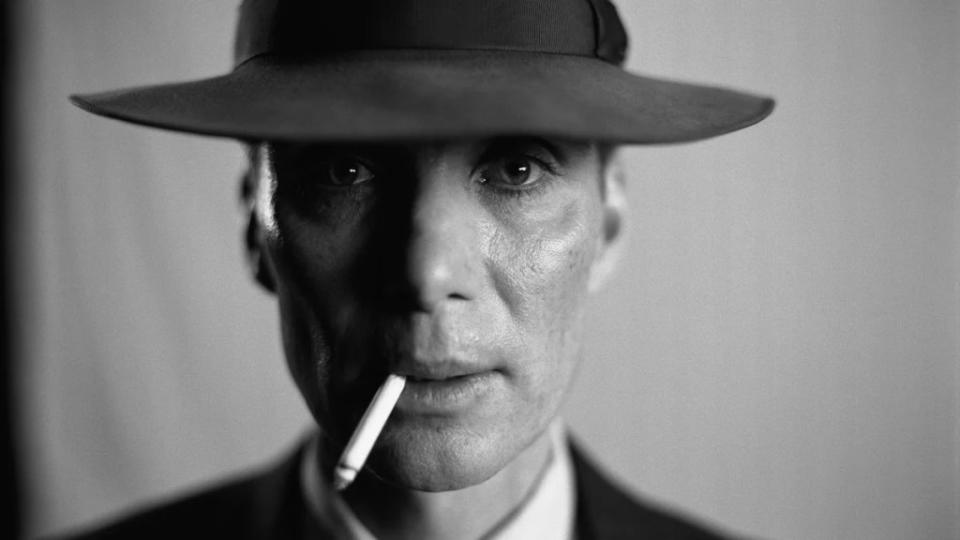2023 Box Office in Review: A Year Where Filmmakers Flourished and Franchises Failed
At the start of 2023, Paramount’s famously candid distribution chief Chris Aronson told TheWrap that “the gloves have to come off” when appraising the box office. COVID-19 could no longer be used as an excuse. Movies, studios and the franchises that hold up the theatrical business would have to either sink or swim on their own merits.
With that in mind, there’s plenty of praise and hard judgments to be made from how this year’s films panned out. The changing tastes of audiences affected every studio, and even the ones that had the highest annual box office totals had some misfires and flops on their slate.
At the start of the year, exhibition and studio sources predicted that the annual domestic box office would finish between $8.5 billion and $9 billion. According to Comscore, the final weekend of 2023 was enough to push the actual total just past that range, to $9.05 billion. That’s a 23% improvement from last year’s $7.36 billion year, but still 20% down from the $11.3 billion of 2019.

In some ways, 2023 felt like a changing of the guard in terms of what makes money at the box office. The superhero genre that reigned over the 2010s wasn’t entirely absent, with “Guardians of the Galaxy Vol. 3” and “Spider-Man: Across the Spider-Verse” finishing among the top 10 highest grossing films of the year.
But aside from the 2020 pandemic year, this is the first year since 2011 that no superhero films hit the top 3 at the global box office. “Spider-Verse” was No. 3 on the domestic charts, but the highest-earning films globally were “Barbie” ($1.44 billion), “The Super Mario Bros. Movie” ($1.36 billion) and “Oppenheimer” (a biopic record $952 million).
Not exactly a victory for original filmmaking, as those movies are still based on toys, video games and U.S. history, respectively. But it does show that audiences are hungry for something different than what they’ve shown up for over the past several years. Along with “Five Nights at Freddy’s” becoming Blumhouse’s biggest box office hit ever, “Mario” signaled the full-time arrival of video games as a box office titan, with a greater share of audiences having grown up with controllers in their hands and wanting to see gaming’s biggest icons on the big screen.
But whether the franchises are fresh or familiar, one thing is clear: A filmmaker’s distinct vision is more vital than ever. Whether it is Greta Gerwig’s satirical take on “Barbie,” Christopher Nolan’s signature cerebral approach in “Oppenheimer” or even James Gunn giving the struggling MCU a boost with his unique brand of humor and heart in “Guardians 3,” many of the top films on the charts got there because directors took something that audiences already knew and presented it in a way they had never seen before.
So, in a year filled with surprise hits and bombs, which films fit into those categories for each studio? Let’s break down the year for each of Hollywood’s major players. Data below is partially based on estimates from The Numbers and Box Office Mojo and will be updated with new data from studios and Comscore when available.
Universal: $1.93 billion domestic

Top films: “The Super Mario Bros. Movie” ($574.9 million domestic/$1.36 billion world wide), “Oppenheimer” ($326 million domestic/$952 million worldwide)
Biggest busts: “The Exorcist: Believer” ($65.5 million domestic/$136.1 million worldwide), “Ruby Gillman: Teenage Kraken” ($15.7 million domestic/$45.5 million worldwide).
If there’s any studio that is best prepared to weather the unpredictable nature of the post-COVID box office, it is Universal. While not all of its 21 theatrical releases this year were successful, each major section of its theatrical slate yielded a major hit that could make up for the duds, most of which carried low-to-mid-size budgets.
Take animation, for example. Universal was not immune to the recent trend of non-sequel, non-major IP titles failing to launch. DreamWorks’ “Ruby Gillman: Teenage Kraken” did not make back its budget theatrically while Illumination’s “Migration” is hoping strong word-of-mouth can help it rebound from a very weak start overseas. On the flipside, there was “The Super Mario Bros. Movie,” by far the biggest film in Illumination history with $1.36 billion worldwide, and it was a hit that has shown that Universal’s partnership with Nintendo is likely to make them a fortune.
There were several horror films that didn’t work, such as “Renfield,” “The Last Voyage of the Demeter” and most notably, “The Exorcist: Believer,” which Universal paid a pricey sum to secure the rights to make. Blumhouse launched two new franchises with the early-year hit “M3GAN,” and “Five Nights at Freddy’s,” the highest grossing film in studio history, both of which will be getting sequels.

Then there’s the summer live-action slate. As the “Fast & Furious” series nears its end, the return on investment is diminishing. “Fast X” grossed $704 million worldwide against a franchise-high $340 million budget. The planned final installment of the franchise has yet to begin production.
But “Oppenheimer” was the most heartening surprise of the year for any cinephile. Audiences bucked their recent trend of skipping films with darker subject matter and came out to the tune of $952 million, a biopic record, against a $200 million production and marketing spend.
Universal isn’t the only studio putting out films with a variety of genres and budget levels, but they had the most success doing it this year. When one film or IP fails, another steps up to make up for the lost ground.
Disney: $1.9 billion domestic
Top films: “Guardians of the Galaxy Vol. 3” ($359 million domestic/$845.5 million worldwide), “The Little Mermaid” ($298 million domestic/$561 million worldwide)
Biggest Busts: “The Marvels” ($84.5 million domestic/$205 million worldwide), “Wish” ($61 million domestic/$176 million worldwide as of Dec. 31)
If there’s a word to sum up Disney’s centennial year, it is “paradoxical.” The studio that was once the undisputed king of the film industry sat just behind Universal in domestic market share and still served as a major pillar of support for movie theaters as they continue to dig out of the hole the pandemic plunged them into.
Yet Disney’s ability to spend hundreds of millions on franchise films from its IP stable and crank out billion dollar hit after billion dollar hit vanished this year, leaving its slate of tentpoles with a curdled track record.
The year started off well with “Avatar: The Way of Water” legging out to $2.3 billion. “Guardians of the Galaxy Vol. 3” completed James Gunn’s trilogy of big Marvel hits and Pixar’s “Elemental” won over audiences so much so that it bucked the trend of original animated movies struggling to draw a crowd.

The flops and disappointments were numerous and well-documented. “Indiana Jones and the Dial of Destiny” was left behind by the Gen Z moviegoers who are the new kingmakers of the box office. “The Little Mermaid” was neither a big bust nor a big hit, performing strongly in the U.S. but ignored by overseas audiences who turned out in droves for remakes of “The Lion King” and “Aladdin.”
“Ant-Man and the Wasp: Quantumania” saw its numbers plummet after its opening weekend as casual audiences weren’t interested in a film that introduced Kang the Conqueror, who must now be recast or written off after Jonathan Majors’ conviction for assault. Disney ended the year with a terrible November, as “The Marvels” became the first MCU film to fail to pass $100 million in domestic grosses while Disney’s anniversary film “Wish” is struggling to reach $200 million globally.
While Disney still brought in a lot of revenue for theaters, exhibition sources have told TheWrap they’re concerned about how Marvel is no longer looking like the reliable ticket seller it was for over a decade. The franchise’s absence from the first half of next year’s slate due to strike-related delays is one reason why annual grosses are expected to take a drop in 2024.
Disney’s plethora of post-theatrical revenue streams can help mitigate the theatrical blow, but considering how the studio was getting that revenue on top of overwhelming box office grosses before COVID-19, it can be safely said that the studio no longer has the surefire audience pull it once had and is now playing by the same rules as the rest of Hollywood.
Disney rebounded from box office struggles in the 2000s when Bob Iger became CEO; and now, during Iger’s much more turbulent second go-around in that role, the studio must do so again with sequels to “Inside Out,” “Deadpool” and “Planet of the Apes” on its 2024 slate. Given the slow-moving nature of tentpole development, any longterm changes Disney’s studios are making in response to this past year won’t be seen in 2024. So it will be up to those sequels to win back audience interest through quality alone.

Warner Bros. — $1.4 billion domestic
Top films: “Barbie” ($636.2 million domestic/$1.43 billion worldwide); “Wonka” ($140 million domestic/$384 million worldwide as of Jan. 1)
Biggest busts: “The Flash” ($108 million domestic/$270 million worldwide; “Shazam!: Fury of the Gods” ($57.6 million domestic/$132.1 million worldwide)
Prior to its busy holiday slate, Warner Bros.’ 100th anniversary was defined by two big stories that were polar opposites in terms of box office fortune.
On the one hand, there’s “Barbie,” an extraordinary cultural phenomenon that was not only the highest-grossing film of the year, but the highest-grossing film ever for the studio — and the highest ever for a female director. Everything about the film’s marketing and release went as well as any studio could ask for from a tentpole, and Warner’s strategy for the film will surely be studied in entertainment business classes at universities for years to come.
But then there was DC, which saw all but the most devoted of fans abandon it amid lackluster reviews and news that new DC Studios co-CEO James Gunn was rebooting the franchise in 2025. The return of Michael Keaton did nothing to help “The Flash,” as it became arguably the most high-profile flop of the summer with just $270 million grossed. “Shazam: Fury of the Gods” and “Blue Beetle” grossed even less. “Aquaman and the Lost Kingdom” is currently doing better thanks to the holiday moviegoing period but appears headed for a similar fate.
To use a sports analogy, DC is currently like the 2021 Arizona Diamondbacks, a team that had the worst win-loss record in baseball, but amidst all the losses was making long-term hires to improve its roster in future seasons. Those rebuilding efforts were rewarded with a trip to the World Series this year. With this brutal year now mostly behind them, Warner Bros. is hoping that DC can have a similar trajectory under Gunn with upcoming titles like “Joker: Folie a Deux” in October and “Superman: Legacy” in July 2025 to rebuild audience goodwill.
Beyond “Barbie” and DC, Warner didn’t have much to write home about. The studio had a couple of modest horror successes with “Evil Dead Rise” and “The Nun II.” Then at the end of the year, “Wonka” strapped a sluggish holiday box office period onto its back with over $150 million domestic and counting through three weeks in theaters. Warner is hoping that “The Color Purple” will show similar legs after its core older, Black audience gave it the biggest Christmas Day opening in 14 years, though it will be a couple weeks before we see how well its word-of-mouth expands to other audiences.
Sony — $982 million domestic
Top films: “Spider-Man: Across the Spider-Verse” ($381.3 million domestic/$682.6 million worldwide)
Biggest busts: “Dumb Money” ($13.9 million domestic/$17.7 million worldwide)
Sony’s strategy at the box office this year was to zag where others zig, producing low and mid-budget films that cater to a specific audience subset and pulling in money down the line from its streaming distribution deal with Netflix.
This sometimes led to films that made a modest return on investment, like Eli Roth’s “Thanksgiving,” Antoine Fuqua’s “The Equalizer 3,” and the microbudget tech thriller “Missing.” Films that didn’t work included the sci-fi thriller “65” and the retelling of the GameStop meme stock craze “Dumb Money.” They were films that flopped theatrically but at least carried production budgets of under $50 million.
For the most part, Sony didn’t have any films that were big tentpole hits or major low-budget surprise successes — except for one. “Spider-Man: Across the Spider-Verse” accounted for nearly 40% of Sony’s domestic grosses this year, earning $381 million domestic and $682.6 million worldwide to set a new record for Sony Pictures Animation.

It’s unclear when Sony will be able to cash in on the cliffhanger ending of the acclaimed animated Marvel movie with the trilogy capper “Beyond the Spider-Verse.” The film was indefinitely delayed due to the SAG-AFTRA strike and there is the possibility of an Animation Guild strike if a contract deal isn’t reached later this year, but it is clear that the recent struggles of superhero films don’t extend to Spidey.
The other big movie of note was “Napoleon,” a film that has grossed $200 million worldwide and would have been a flop for Sony had it been on the hook for the historical epic’s tentpole budget. Instead, Sony is reaping the benefits of a low-risk, high-reward distribution deal with Apple, which is hoping that putting films it has produced in theaters will draw more interest to Apple TV+. Sony isn’t the only studio partnering with Apple, but it will be getting more involved with the Silicon Valley company in 2024 with two more Apple-produced films on its theatrical slate: “Wolfs” starring George Clooney and Brad Pitt and an untitled thriller.
Paramount — $842 million domestic
Top films: “Mission: Impossible — Dead Reckoning” ($172 million domestic/$566.3 million worldwide); “Teenage Mutant Ninja Turtles: Mutant Mayhem” ($118.6 million domestic/$180 million worldwide)
Biggest busts: “Dungeons & Dragons: Honor Among Thieves” ($93.2 million domestic/$207.5 million worldwide)
The meteoric success of 2022 gave way to a more mixed bag for Paramount in 2023. On the bright side, the studio’s expansion of its animation slate got off to a good start with “Teenage Mutant Ninja Turtles: Mutant Mayhem.” The studio also got in on Apple’s theatrical plans with Martin Scorsese’s “Killers of the Flower Moon,” and “Scream VI” solidified that franchise’s transition from a Gen X horror series to a Gen Z one (though “Scream VII” is now in doubt.)
On the other hand, “Dungeons & Dragons: Honor Among Thieves” became a big-budget flop despite strong reviews, as it could not compete with the four-quadrant behemoth that was “Super Mario Bros.” “Transformers: Rise of the Beasts” failed to cross $500 million without the turnout from China that previous installments got, and the hype around Tom Cruise for “Top Gun: Maverick” did not transfer over to “Mission: Impossible — Dead Reckoning,” which performed more like any other installment in the long-running action series, sans China, while “Barbie” and “Oppenheimer” dominated the spotlight.
For their part, insiders at Paramount pointed to post-theatrical revenue that added value to many of its top franchise films, such as merch sales for “TMNT” and “Paw Patrol” — franchises whose movies posted a modest profit off of theatrical grosses alone but made billions more in downstream revenue — and the rise in home platform revenue for past “Mission: Impossible” films when “Dead Reckoning” was released.
As for “Transformers,” the studio believes it has found a way forward for the Autobots with “Transformers One,” next year’s animated origin story about Optimus Prime that will allow Paramount to continue the franchise at a lower budget level than the live-action/CGI series Michael Bay began 17 years ago.
Lionsgate — $586 million domestic
Top films: “John Wick: Chapter 4” ($187.1 million domestic/$432 million worldwide); “The Hunger Games: The Ballad of Songbirds and Snakes” ($160.6 million domestic/$322 million worldwide as of Jan. 1)
Biggest busts: “Expend4bles” ($16.7 million domestic/$51.1 million worldwide); “Silent Night” ($7.9 million domestic/$9.7 million worldwide)
With its strategy of keeping production costs down and selling international theatrical rights to overseas distributors, Lionsgate does business in a much different way than the big legacy studios. That resulted in a year that didn’t light up the charts but allowed for a low-risk/high-reward approach to the post-COVID box office.
Though they were both well-received by critics and core audiences, “Are You There God? It’s Me Margaret” and “Joy Ride” never got traction with a wider audience and didn’t gross more than $20 million domestic. Then there was “Expend4bles,” a panned action sequel that grossed $16.7 million, a huge drop from the $103 million the first “Expendables” made in 2010.
But Lionsgate scored huge victories in reviving franchises that seemed played out. Though it didn’t reach the heights of its early 2010s heyday, the “Hunger Games” prequel “The Ballad of Songbirds and Snakes” legged out to $313 million worldwide against a $100 million budget, while “John Wick: Chapter 4” went even further, to a series-high $432 million. The low-budget “Saw X” rode unusually high critics’ reviews to a $53 million domestic and $109 million global run.
Combine that with continued secondary support from faith-based partners Kingdom Story Company — which had a low-budget success with “Jesus Revolution” — and Lionsgate is finding stability in a turbulent period.
Best of the rest
Beyond the major studios, several other distributors had standout performances this year. While A24 didn’t have anything as big as Best Picture winner “Everything Everywhere All at Once,” it did find another indie horror hit with the harrowing, $49 million-grossing “Talk to Me.” 2023 also saw MGM come under the full ownership of Amazon Studios in a year where the studio found box office success with Michael B. Jordan’s “Creed III” ($156 million domestic) and suffered through a painful loss with the death of longtime distribution chief Erik Lomis.
The biggest surprises at the box office came entirely from left field. AMC Theaters, looking for box office support amid strike-fueled uncertainty, went over the heads of everyone in Hollywood by striking a deal with Taylor Swift and indie distributor Variance Entertainment to bring the pop star’s concert film to theaters without a studio attached.
The $250 million global gross of “The Eras Tour” showed the genre’s ability to provide something different for moviegoers during periods when studios don’t put out big films. It happened again when AMC released Beyonce’s “Renaissance” in early December, where it sold tickets alongside Japanese breakouts “The Boy and the Heron” and “Godzilla Minus One,” which both set U.S. box office records for Studio Ghibli and Toho’s “Godzilla” franchise.
But there was no indie sensation bigger than “Sound of Freedom,” the crowd-funded thriller from faith-based outlet Angel Studios. It ended up cracking the top 10 on the U.S. annual charts. Driven by its controversial yet unique “Pay It Forward” ticketing system, grassroots word-of-mouth and conservative audiences looking to send a message to Hollywood, “Sound of Freedom” helped make up for some of the shortfalls in box office performance for more established franchises.
The post 2023 Box Office in Review: A Year Where Filmmakers Flourished and Franchises Failed appeared first on TheWrap.

 Yahoo News
Yahoo News 
